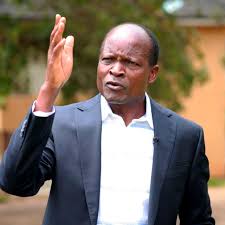By Anderson Ojwang
The once-robust sugar industry, which was the main economic pillar of Western Kenya, has witnessed a near collapse for over four decades.
Sugarcane farmers have, for decades, endured untold suffering due to unpaid cane deliveries, high production costs, and huge loans that have nearly crippled the sector.
The factories, likewise, have been reeling from heavy debts, an unfavourable business environment, cane shortages, and underhand dealings by sugar cartels, coupled with the greed of sugar importers.
The recent move by President William Ruto to revive the sugar sector by writing off loans, paying farmers’ arrears and employees’ salaries, and allocating additional funds for cane development has breathed new life into Kenya’s sugar industry.
Recently, the Kenya Sugar Board also increased the cane price from Sh5,000 to Sh5,300 per tonne delivered to the factory.
Former Chairman of the Kenya Sugar Board, Mr Okoth Obado, says the main afflictions of the sector are greed and imports, which negatively impact the industry.
Obado, the immediate former Migori Governor, argues that for the sugar sector to grow, stakeholders must curb greed and stop importing sugar.
“Kenya is capable of producing enough sugar for both domestic consumption and export. However, due to greed and the obsession with making abnormal profits through sugar imports, efforts to revitalise the sector have been, and continue to be, undermined.
In the 1970s, Kenya produced enough sugar for both local consumption and export. Where did we go wrong and end up resorting to imports? The answer is simple—greed and the desire for quick riches,” he says.
Obado states that the sugar sector has the potential to generate Sh106 billion annually and create at least 500,000 jobs across the country.
“For instance, if an individual farmer grows cane on one acre, with the acre yielding 40 tonnes of cane, and we have 250,000 acres under sugarcane cultivation, we could create 250,000 jobs.
Given that each acre represents one farmer, multiplying this would give us 10 million tonnes of sugar annually—enough to meet Kenya’s sugar demand of 1 million tonnes per year.
Since sugarcane takes two years to mature, another 250,000 acres can be planted while the first batch matures, creating a continuous cycle. This would ensure that Kenya produces sufficient sugar for local consumption, eliminating the need for imports.
Additionally, from one acre, a farmer can earn approximately Sh212,000 from selling 40 tonnes of cane, which would enable them to meet most of their basic needs.
The government must shield farmers from excessive taxation and implement structures that promote farming.
Currently, reports indicate that Kenya produces approximately 800,000 tonnes of sugar annually. However, the country still faces a deficit, as annual sugar demand stands at around 1 million tonnes.
Similarly, according to recent data, Kenya imports approximately 320,000 metric tonnes of sugar annually, though the figures fluctuate depending on the year and domestic production levels. In 2022, for instance, Kenya imported about 320,700 metric tonnes.
The sad reality is that this Sh53 billion, which could benefit local farmers and factories, instead goes to importers and foreign countries. These importers reap super-normal profits, which is why the sugar industry continues to struggle,” he says.
Obado asserts that the machines in local factories are not dilapidated and can compete with those in developed sugar-producing countries such as Brazil.
“I have been to Brazil and India; they use the same technology as ours—systems that were installed in the 1940s. All successful factories still rely on this crushing technology.
The sugar industry remains viable, which is why Kenya currently has 17 factories, both public and private, with more investors keen on entering the sector.
There is still a gap in the sugar sector, and if we overcome the negative attitude driven by greed, both our factories and farmers will benefit immensely from cane production,” he says.
Obado further highlights that unfair trade practices within regional trading blocs have created loopholes for unscrupulous traders to flood the local market with imported sugar.
“For instance, in the East African trading bloc, Tanzania is a member of the Southern African Development Community (SADC), an intergovernmental organisation that promotes cooperation and integration between Southern African countries.
This makes it easy for sugar from South Africa and other SADC member states to enter the Kenyan market, despite Tanzania not being a member of the Common Market for Eastern and Southern Africa (COMESA). Tanzania withdrew from COMESA in 2000 due to economic considerations,” he says.
Obado argues that agriculture forms the backbone of Kenya’s economy, and if the government can resolve some of the pressing issues in the sugar sector, it would revitalise the cane-growing regions and create employment opportunities.




